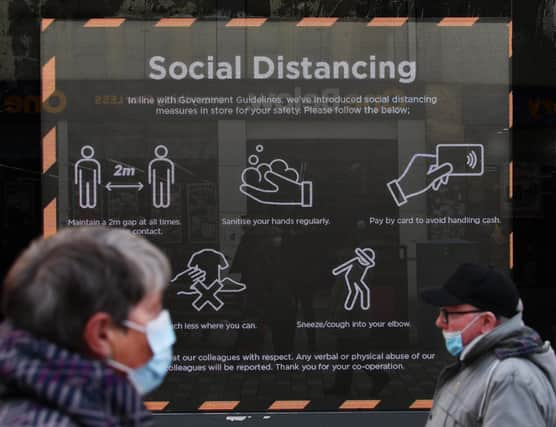Substantial differences in shielding criteria between areas of Scotland and UK, study finds


The study compared Grampian in Scotland with other areas of the UK, including Liverpool and Wirral, Leeds, North West London and Wales.
Grampian had the lowest proportion of people told to shield, at 2.5 per cent of the population, around 15,000 people, while in Liverpool 7.5 per cent of people were on that list.
Advertisement
Hide AdAdvertisement
Hide AdThere were also differences between how people identified, with those in Grampian mainly chosen by their GP or hospital consultant, while the majority in Wales were put on the list after an automated scan of their medical records.
Shielders in Grampian are generally older than the population average, and more likely to live in a deprived area.
The main reason for shielding in Grampian was having an underlying respiratory illness like chronic obstructive pulmonary disease (COPD) or severe asthma, followed by use of immunosuppressants and cancer.
Dr Jessica Butler, Aberdeen University Research Fellow and Analytical Lead for the project in Grampian, said: “We found substantial variation across the UK in how shielders were identified as well as in their personal circumstances - including the types of illnesses they have, where they live whether that’s in towns and cities or rurally, neighbourhood deprivation, and ethnicity, all of which highlights the different types of support that will be needed to ensure this diverse group can stay safe.
“Most importantly, sharing and understanding the range of local approaches used to identify the most vulnerable and support them helps to ensure that all who are at risk are identified and given equitable access to the services they need.”
In some cases shielding led to earlier vaccination, as those on the list were included in the JCVI vaccination priority group along with those aged 70 to 74.
However, researchers also warned that there were negative effects to shielding, which highlighted the need for a well considered process.
“Shielding could result in people not receiving usual healthcare for their underlying conditions,” said Dr Butler.
Advertisement
Hide AdAdvertisement
Hide Ad"So isolation now may result in worse outcomes and heavier use of healthcare later, which means there is an urgent need to understand and plan for the healthcare needs of those shielding.”
A message from the Editor:
Thank you for reading this article. We're more reliant on your support than ever as the shift in consumer habits brought about by coronavirus impacts our advertisers.
If you haven't already, please consider supporting our trusted, fact-checked journalism by taking out a digital subscription.
Comments
Want to join the conversation? Please or to comment on this article.